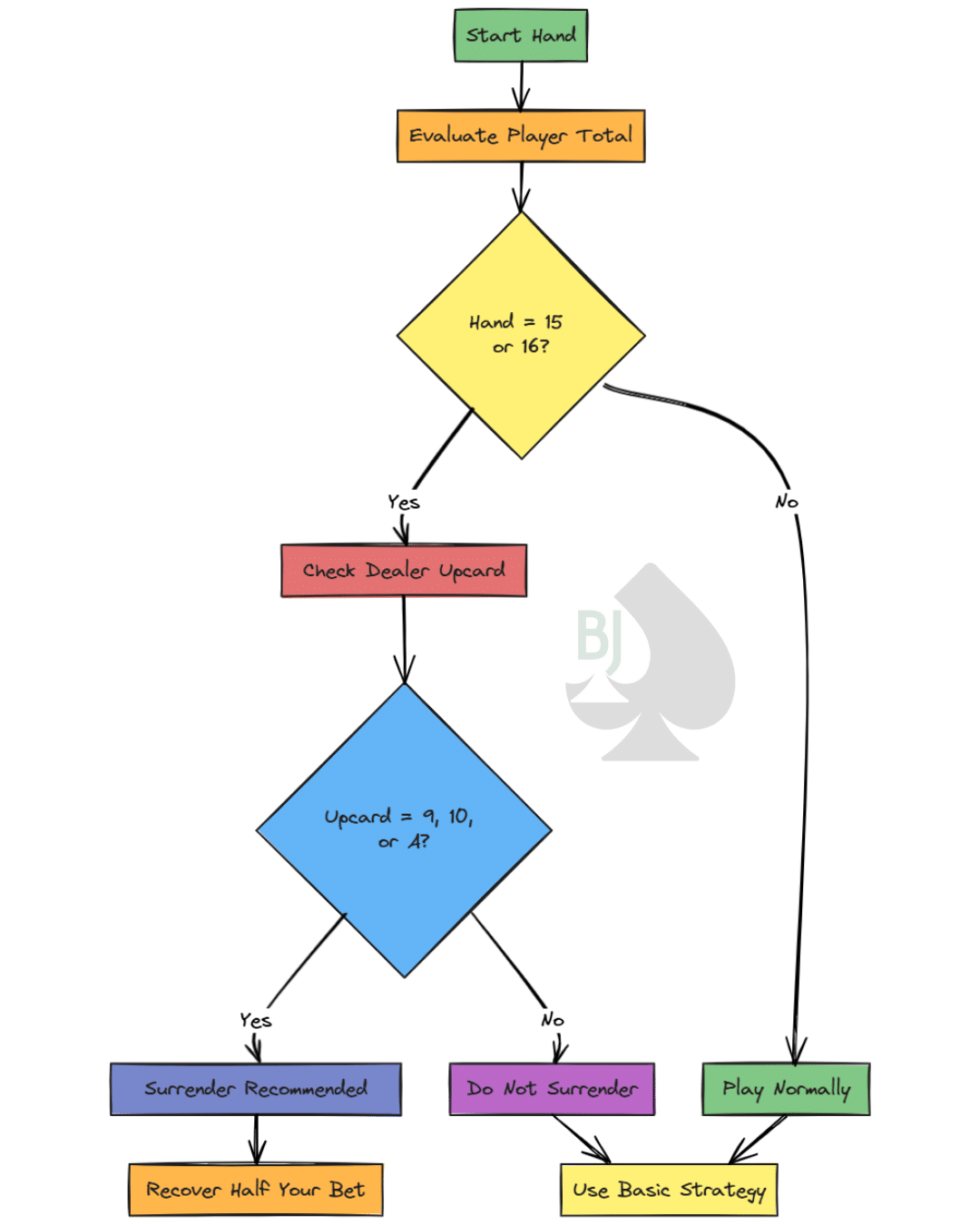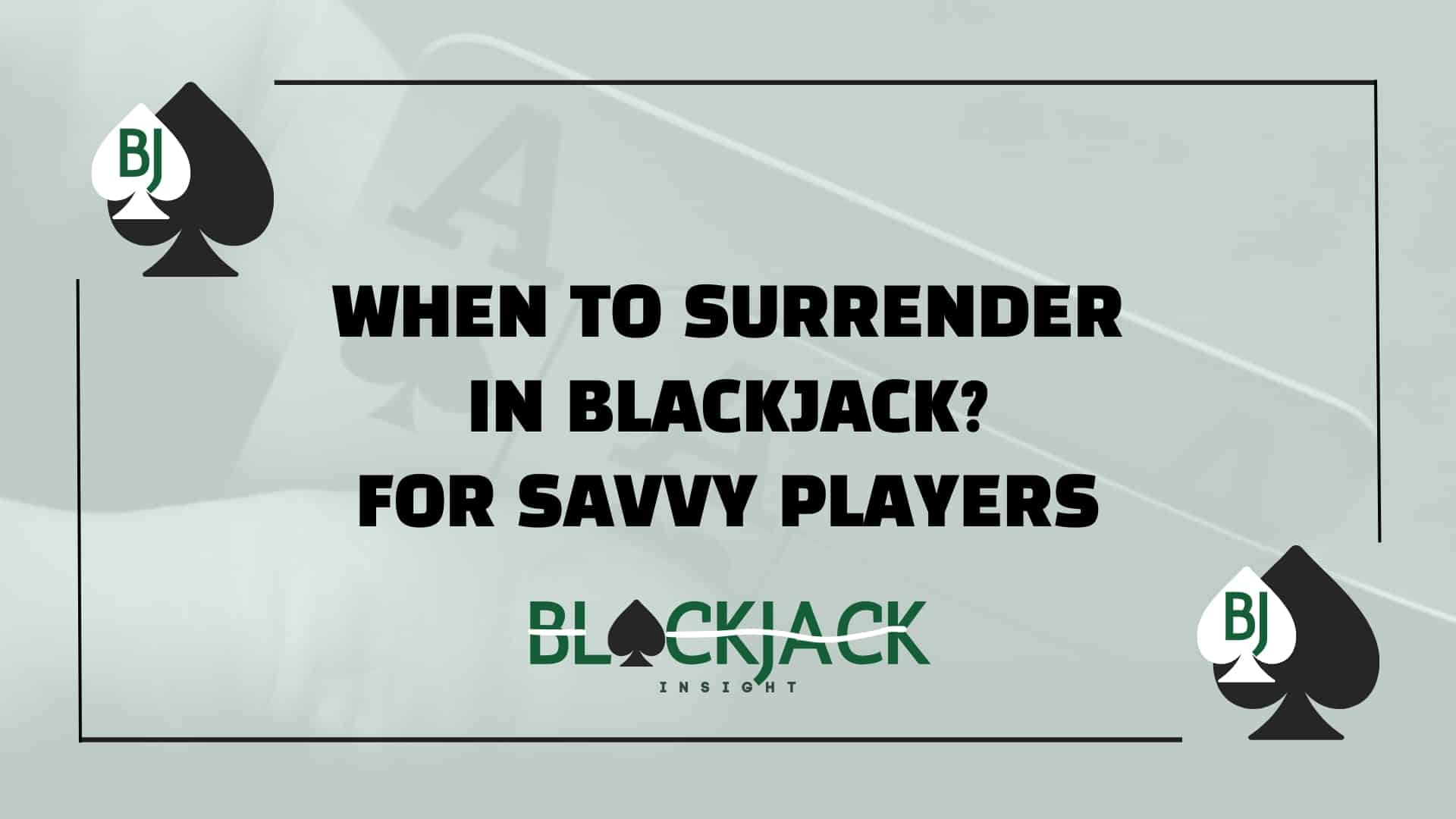When to Surrender in Blackjack: Strategies for Savvy Players
Table Of Content
There’s a moment at the table when you’re staring down a brutal dealer upcard, say, a 10, and your hand is looking like a train wreck (hello, 16). You feel trapped. You want out. You’ve probably wondered, “Is this when I should surrender in blackjack?”
And if you’ve never used the surrender option before, don’t sweat it. A lot of casual players don’t even realize it exists, let alone when to use it. But here’s the thing: knowing when to surrender in blackjack isn’t about giving up, it’s about cutting your losses like a pro.
When to Surrender in Blackjack: The Basic Strategy
So, the answer depends on two things: your hand and the dealer’s upcard. It’s about probability, not gut feeling. Here’s a simple cheat sheet from years of experience (and a little help from solid blackjack charts):
You should surrender if…
- You have a hard 16 (not a pair of 8s) and the dealer shows a 9, 10, or Ace.
- You have a hard 15, and the dealer shows a 10.
That’s it. Seriously. There are other edge-case situations in complex charts (like surrendering 17 vs. Ace in some rare games), but unless you’re counting cards or playing in a specific rule set, these are the golden rules.
When You Can’t Surrender (And What to Do Instead)
Let’s say you’re playing at a table with no surrender option. It happens.
In that case, you’re stuck with the classic choices: hit, stand, double down, or split (if applicable). The trick is to follow the basic blackjack strategy chart for those situations. Don’t go rogue because you would have surrendered.
Think of it like this: when surrender isn’t allowed, strategy shifts slightly. For example, you hit 15 vs. 10 instead of surrendering. Still a bad situation, but at least you’re playing optimally.
Should You Ever Surrender in Blackjack Tournaments?
Quick tip: if you’re playing a blackjack tournament, surrendering becomes more situational. It’s not just about math; it’s about chip count, position, and pressure.
If the table’s tight and you need to hang on to your stack, surrendering a bad hand can be smart. But if you’re behind and need to catch up, you might have to take more risks, even with a weak hand.
Tournament play flips the script a bit. So think strategically, not just statistically.
Surrendering Online vs In-Person
Online blackjack can be a great place to learn how to use surrender. Why? Because most online platforms with decent rules will clearly tell you if the surrender option is available.
It’s also a good way to practice your decision-making without the social pressure. No one’s judging you through a screen when you surrender 16 vs. Ace for the third time in a row.
That said, make sure the site you’re using actually allows surrender. Some of the cheaper blackjack variants skip it altogether.
Advanced Considerations
There are some situations you might consider when deciding when to surrender in blackjack.
If You’re Counting Cards
- High Count: The deck is richer in 10s/Aces, so your potential for improvement is higher. You might surrender less often.
- Low Count: If the deck is poor for your totals, you might surrender more frequently.
Rule Variations (H17 vs. S17, etc.)
- If the dealer hits on soft 17, the house edge is a bit higher, which can shift marginal surrender spots.
- If early surrender is an option (rare), you might fold earlier for better EV in certain combos.
Mistakes & Pitfalls
Here are some rookie mistakes. Read well and don’t do these next time.
- Some players automatically fold if they see a scary dealer card. But sometimes, hitting or splitting might be better (for instance, a pair of 8s typically begs for a split).
- If you have a pair of 8s vs. a dealer’s 10, check if it’s better to split rather than surrender.
- Don’t just throw in the towel every time a hand looks grim. Basic strategy is math-based, not mood-based.
- Always confirm if surrender is even permitted, and which kind (early vs. late). Some places have unique twists.
Play Smart, Not Proud
Look, blackjack is all about making the right decision at the right time. Surrendering isn’t giving up; it’s knowing when to minimize damage so you can stay in the game longer.
You’re not just playing one hand. You’re playing dozens, maybe hundreds. Learning when to surrender in blackjack is just another tool in your kit and one that can seriously improve your odds if used properly.
If you’re still unsure, print a blackjack surrender chart and keep it with you until it becomes second nature. It’s not cheating; it’s preparation.
Download Blackjack When to Surrender Chart

FAQs
1. Can I surrender after doubling or splitting?
Typically no. Most casinos forbid surrender once you’ve made another advanced move.
2. When are you allowed to surrender in blackjack?
You can surrender immediately after the first two cards are dealt, before hitting or standing, if the casino allows it. In late surrender, you can only do this after the dealer checks for blackjack.
3. Should I just surrender every tough hand?
Definitely not. Focus on the known “worst-case” hands like 15 or 16 vs. a strong dealer card.



